Meet All Candidates For Judges On The Ballots This Year
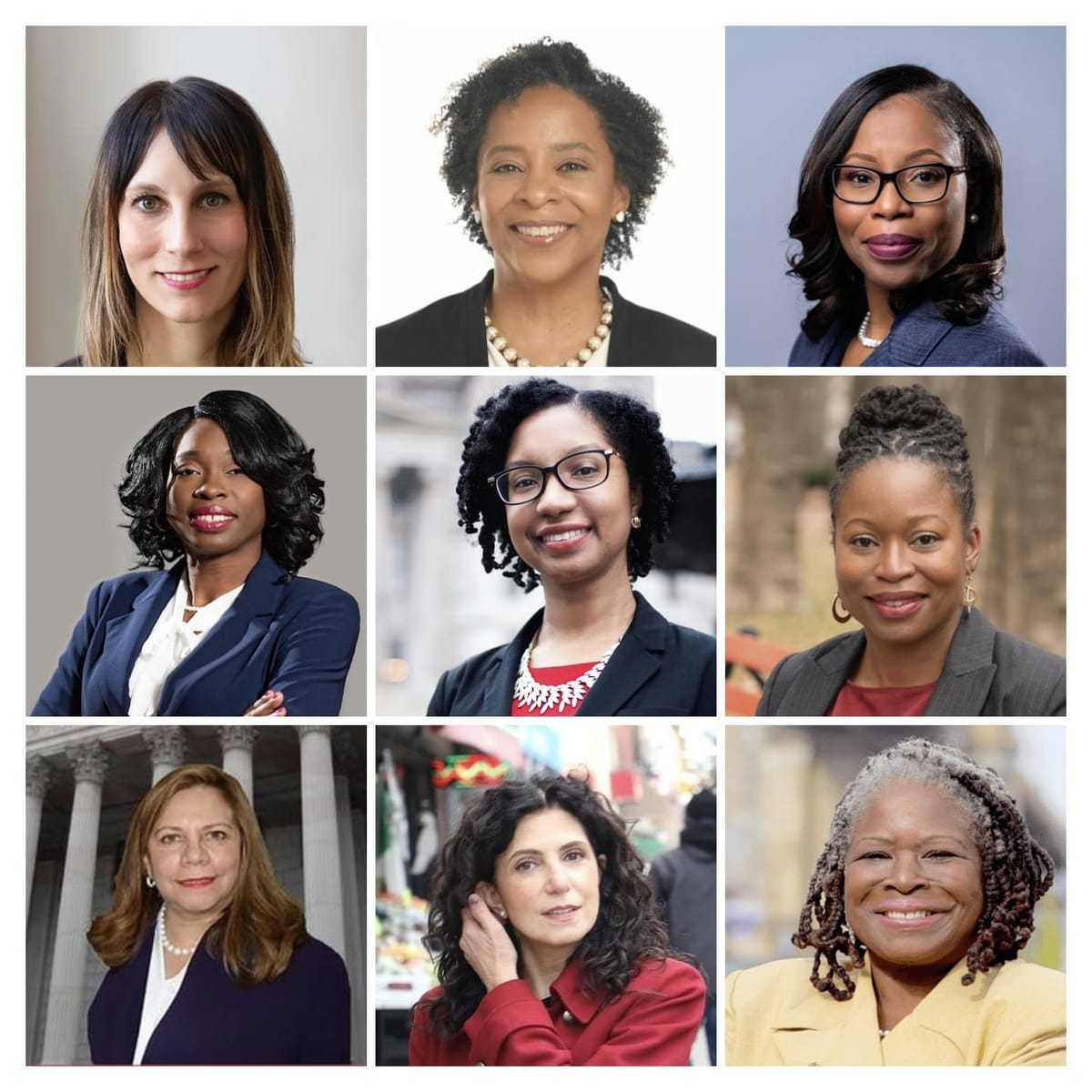
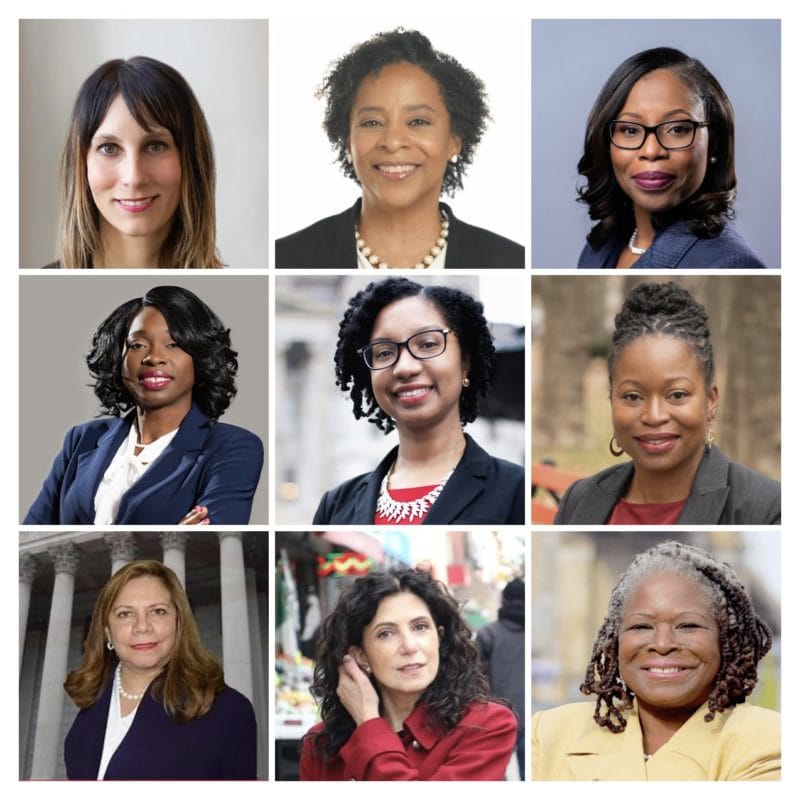
New York’s June 22 primary election is only weeks away and campaigns are getting into full gear for the final stretch.
In Brooklyn, voters will get to choose among several candidates in competitive, open-seat elections for Mayor, Comptroller, Borough President, and most City Council seats, along with other races which are less competitive due to the presence of an incumbent – Public Advocate, District Attorney, and some City Council seats.
Voters will also get to select judges running for six open seats on the bench of the city’s courts. These races typically receive minimal media coverage, to the point that many, if not most, people walk into the voting booth and make selections for judges without knowing anything about the candidates, if there’s even a competitive primary at all.
In Brooklyn, open seats on the bench include one on the Surrogate Court, the court responsible for probate of wills and estates, as well as three countywide Civil Court seats, one Civil Court seat in Municipal District 2 (covering parts of Bed Stuy and Crown Heights), and one Civil Court seat in Municipal District 7 (covering parts of Bushwick and East New York).
Two of the countywide Civil Court seats will not be up on the primary ballot, as Brooklyn Democratic Party-endorsed candidates are running unopposed. Those candidates will still appear on the November ballot, though.
An important point about the city’s judicial elections this year is that they will not be using ranked-choice voting, as is being used for other city races; this is because the judgeships are technically state positions. Relatedly, judicial candidates are also not eligible for the city’s generous public matching funds program.
Bklyner reached out to everyone running for judge in the borough who will appear on the ballot in the June primary, and to those candidates who will not, but will show up on the November ballot, to learn more about their backgrounds, their judicial philosophies, and their thoughts on how local politics, particularly the Kings County machine, intersects with elections for officials tasked with maintaining neutrality.
We spoke with seven of the ten candidates for Brooklyn judgeships, namely Surrogate candidate Rosemarie Montalbano, countywide Civil Court candidates Inga O’Neale, Casilda Roper-Simpson, and Heela Capell, 2nd District candidates Lisa Lewis, Lola Waterman, and Marva Brown, and 7th District candidates Keisha Alleyne and Carmen Pacheco. Their profiles are listed in the order in which they’ll appear on the primary ballot, with the exception of Capell, who is running unopposed and won’t appear on the ballot.
Bklyner made multiple attempts to reach and schedule interviews with Surrogate candidate Dweynie Paul, and countywide Civil Court candidates Charles Finkelstein and Sharen Hudson. Paul initially agreed to an interview but never followed up for scheduling, while Finkelstein and Hudson did not respond to inquiries.
For more general background information on this year’s judicial races, please see Part 1 of this series.
Surrogate Court
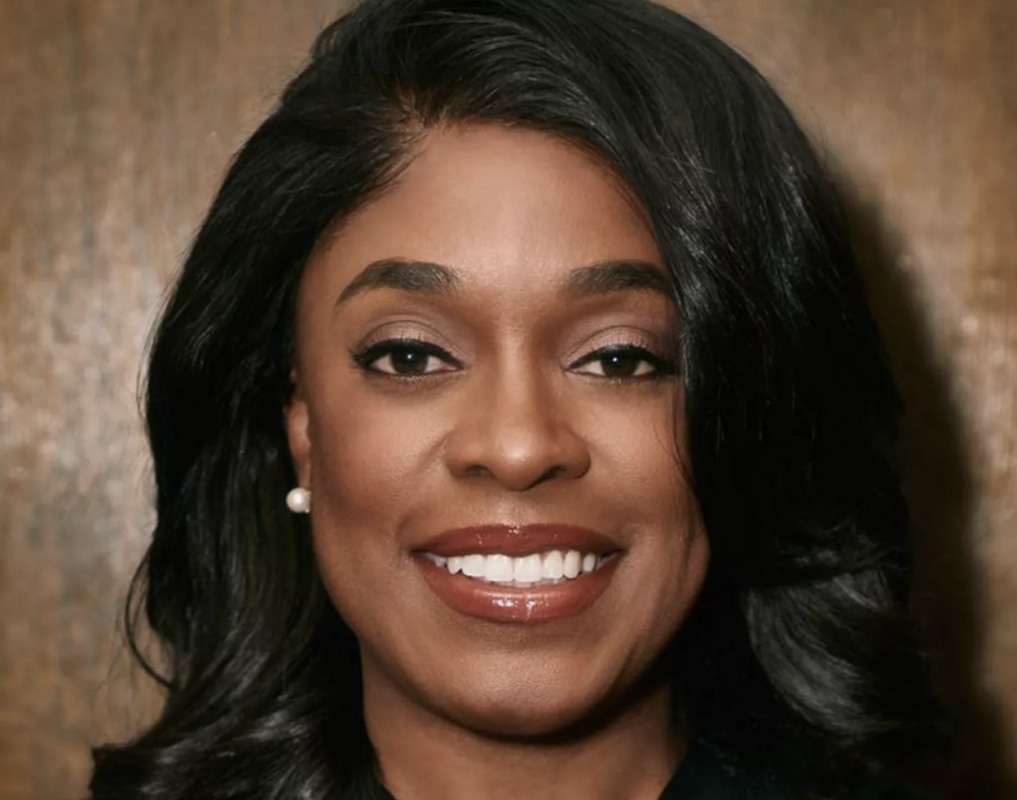
Dweynie Paul
Dweynie Paul, who did not agree to an interview with Bklyner, was elected to Brooklyn Civil Court in 2015 but is currently assigned to Queens Family Court. She was the first Haitian-American ever elected to Civil Court in New York. She lives in Bed Stuy.
Paul graduated from George Washington University School of Law. After graduating, she worked as a law clerk for Judge Marcella Holland in Baltimore City Circuit Court. She was working as in-house counsel for Travelers Insurance before being elected to the bench.
She has also served on Community Board 3, was Director of Community Service at the Metropolitan Black Bar Association, and was a member of Bed Stuy’s Vanguard Independent Democratic Association, according to her campaign website. She was also Vice President of Eye of a Dream, a nonprofit which funds educational scholarships for children in Haiti.
Paul has the backing of the Kings County Democratic Party. She seems to have a close relationship with party chair Rodneyse Bichotte: Paul was Bichotte’s campaign manager in her unsuccessful 2012 Assembly campaign to oust Rhoda Jacobs, whom Bichotte would eventually succeed two years later upon the former’s retirement. Bichotte has referred to Paul as “my sister,” according to an article from the Haitian Times upon Paul’s election as judge. Both Bichotte and Paul were the first Haitian-American women elected to their respective positions.
Paul’s campaign encountered controversy earlier this year after a lawsuit resurfaced alleging she had paid her mother’s home health aide just $2.29 per hour and stiffed the aide of $264,000 in wages and overtime. Numerous politicians came to her defense, including U.S. Rep Yvette Clarke and City Council Majority Leader Laurie Cumbo, along with numerous Senators, Assemblymembers, and City Council Members; they categorized the controversy as a smear campaign against a Black woman.
A key difference between Paul and her primary opponent, Rosemarie Montalbano, is their stance on the public administrator role in the Surrogate Court, a plum administrative position selected by the Surrogate that has historically been a hub for patronage. Montalbano supports a bill in Albany to place appointment power for the Public Administrator and its counsel in the mayor’s office, rather than the Surrogate’s.
Paul’s public statements indicate that she does not favor the change, arguing that political figures like the mayor would instead taint the Public Administrator. “It ties in the opportunity for politics to get in the way of what the judge is supposed to do,” she said at a February forum. “And judges are away from politics and focus on what’s right, what’s just, under the law. And so I believe that as Surrogate, I can maintain that role.”
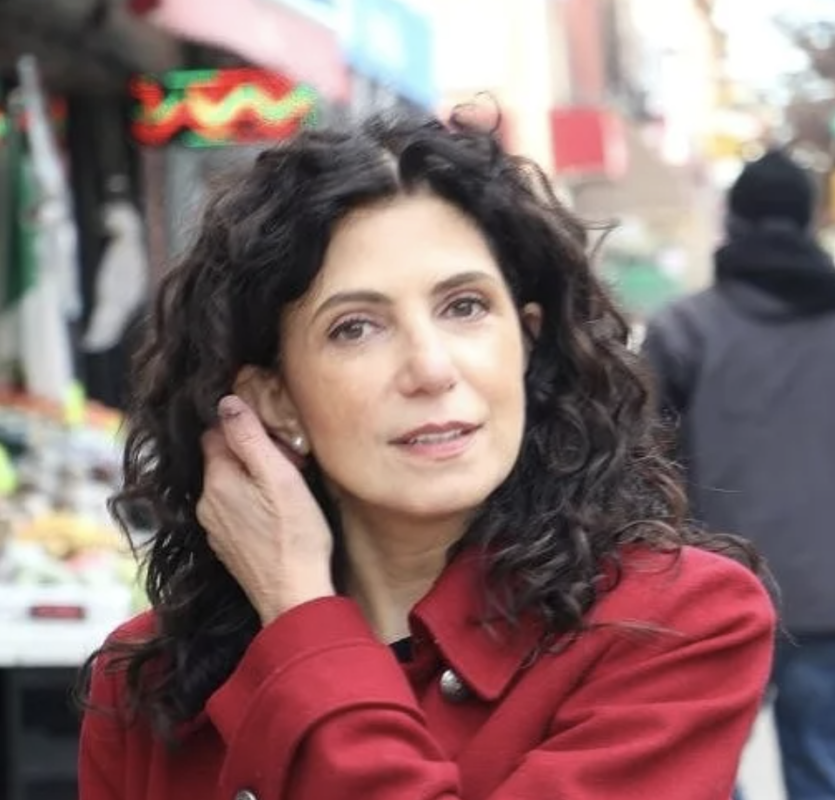
Rosemarie Montalbano
Rosemarie Montalbano currently serves as a justice in Brooklyn Supreme Court, a position she was first elected to in 2019 after serving on the Civil Court bench for five years. She was born and raised in Bushwick, where she still lives today, and helped run her family’s deli growing up before attending Western New England School of Law in Massachusetts.
Montalbano says running for Surrogate is personal for her, owing to what her family experienced undergoing foreclosure in the 1980s. She told Bklyner that her father, an immigrant from Sicily who spoke limited English, defaulted on a mortgage loan that he had signed at the behest of a “predatory” lender, after missing payments on his initial mortgage. She was in law school at the time but her father had not appraised her of the situation before signing documents. She said that she was able to secure a private loan and get her family’s house back, but that that would be impossible today because of the introduction of tax lien sales and third party transfers.
“If that program was in effect when my family was going through the foreclosure, the house would have been gone,” Montalbano said. “These are all experiences that I feel that I bring to the bench.”
She said that working in Surrogate Court allows what she feels is a closer connection to regular people, who are often representing themselves, than can be seen at Supreme Court, where the cases heard are either criminal cases where public defenders are appointed, or civil cases involving large monetary disputes. She says that one of her goals as a judge is to prevent people from being taken advantage of like her father was.
“When I was in the lower court, everyday, when I dealt with pro se [unrepresented] litigants, it was a goal of mine that people who came before me, that they understood the proceedings,” Montalbano said. “That they weren’t agreeing to something against their best interests.”
Montalbano said that she sees the role of a judge as being more than an interpreter of statutes. “I think the role for me as a judge is to protect our most vulnerable when they come to court,” she said. “To make sure people understand the proceedings and are not taken advantage of. To be the gatekeeper.”
One of the key substantive differences between Montalbano and primary opponent Dweynie Paul is their stance on the public administrator, an administrative position in the Surrogate Court responsible for executing the estates of those who die without a will. That position, along with the administrator’s counsel, is picked by the Surrogate and has historically been a prime patronage position for the county party. Montalbano described the Surrogate Court to Bklyner as a “mill of corruption” owing to that.
Montalbano said that she supports the bill in Albany by Assemblymember Robert Carroll to transfer appointment power for the public administrator from the Surrogate to the Mayor; Paul does not support the measure. Montalbano nonetheless said that if the bill doesn’t pass, she would attempt to stay out of the fray of the Public Administrator’s work, and would not use the position for patronage.
“Whether it’s a public administrator or counsel, that’s not something I would take lightly,” she said. “I certainly would not appoint a firm because of politics. I’d have a vetting process.”
Montalbano also said that she would like for the Surrogate Court to be more expeditious in filling vacancies for administrative staff, which she characterized as being inordinately high.
“There are multiple vacancies in the surrogate court right now,” she said. “By that I mean support staff. There’s been issues with budgets, but we really as surrogates have to implore the office of court administration to give us the ability to fill those vacancies. It is a very busy court. We need everyone to work together.”
Montalbano said that the large number of vacancies among support staff had a direct impact on those cycling through the court, leaving many cases unresolved for years due to inadequate staffing and resources. “I would like to see things move quicker,” she said. “Why are cases lingering for years?”
Montalbano was passed over for the county party endorsement in favor of Paul, but has received endorsements from various elected officials, such as Congresswomen Nydia Velazquez and Carolyn Maloney and State Senator Julia Salazar, along with several reform-oriented Democratic clubs in the borough.
Civil Court – Countywide
Charles Finkelstein
Charles Finkelstein, who did not respond to requests for an interview with Bklyner, is an attorney at the real estate law firm Wenig Saltiel LLP. Though Finkelstein will appear first on the ballot for the countywide Civil Court seat, he does not have a campaign website, social media profiles, nor much of an online campaign infrastructure to speak of. He’s unsuccessfully run for Civil Court in the past, including in 2004 and 2012; in 2012, he ran under the slogan “Let’s put a mensch on the bench,” but lost to Steven Mostofsky.
Per his website, he has also served as an Assistant District Attorney in Brooklyn, an Assistant Special Narcotics Prosecutor in Manhattan, and as an administrative law judge at the city’s Department of Finance.
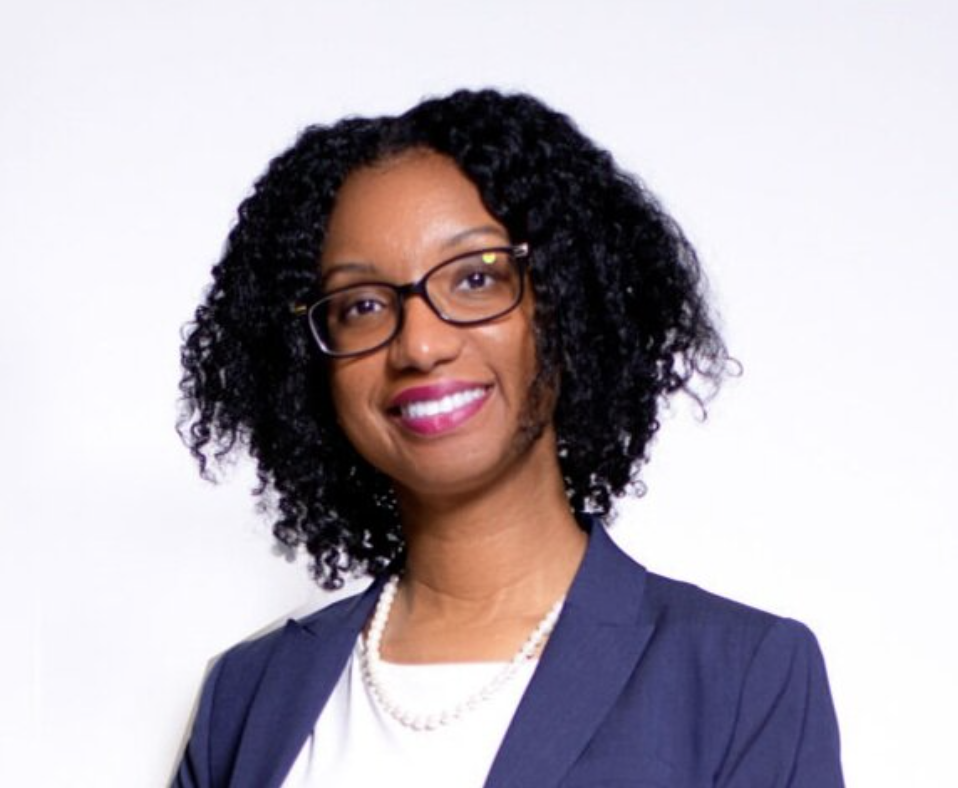
Inga O’Neale
Inga O’Neale currently serves as the principal law clerk for State Supreme Court Justice Donald Kurtz, after having worked in the court system in various capacities for nearly two decades. She was born in Antigua, raised in Grenada, and moved to New York to attend college. She is a graduate of Hofstra Law School and currently lives in Flatbush.
After graduating law school she initially intended to work in family law. She applied to the Legal Aid Society, but changed course due to a hiring freeze brought on by the post-9/11 recession. She then applied to work as a court attorney, conducting research and helping draft decisions to assist judges in cases. Since then she has worked in numerous different areas of the court system, such as assisting pro se litigants in the Office of the Self-Represented and resolving appeals in the Civil Appeals Management Program.
O’Neale eventually went to work as principal law clerk for Judge Randolph Jackson, who specialized in medical malpractice cases, until he retired, at which point she moved to work with Judge Larry Martin in the “General Individual Assignment System” part, which involves cases in most areas of civil law. She eventually made her way to Kurtz’s courtroom. She has also worked as a volunteer arbitrator in small claims court.
O’Neale is a board member of the Metropolitan Black Bar Association, served as Vice President of the service organization Brooklyn Canarsie Lions Club, and has served in various leadership capacities with the protractedly-named Association of Law Secretaries to the Justices of the Supreme and Surrogate’s Court.
O’Neale has never run for office before. “Why now? Why not now ,” she said. “Why wait, what am I waiting for. I think it’s something I’m capable of doing and I want to ensure that people are treated fairly.”
She said that she wants to bring a perspective of greater understanding to the bench.
“People don’t come to court because they want to, it’s because something happened to them,” she said. “I just want to ensure that anyone coming into the court system, that they have an equal, fair opportunity to be heard, that they’re given a fair shake.”
O’Neale said that while judges need to apply the law in a fair and impartial manner, they should also ensure that injustice is not done in their courtroom.
“I think it’s important as a judge that you have empathy and compassion because there’s a certain level of discretion a judge is given,” she said. “And most importantly, a judge has to have humility when making decisions.”
O’Neale has been endorsed by the Brooklyn Democratic Party organization in her race, but has also been endorsed by the reformist Independent Neighborhood Democrats. She said that despite having the party’s endorsement, politics will not play a role for her on the bench. “I’m running for office on a platform based on my experience and not based on any political party or elected official,” she said. “I’m doing this because this is something I believe and I know I’m capable of doing.”
“I intend on being, if elected, the best judge I can be,” she said. “My commitment is just to do the right thing, and to be fair. People expect you to conform to something, I’m just not going to do that. I’m going to be me.”
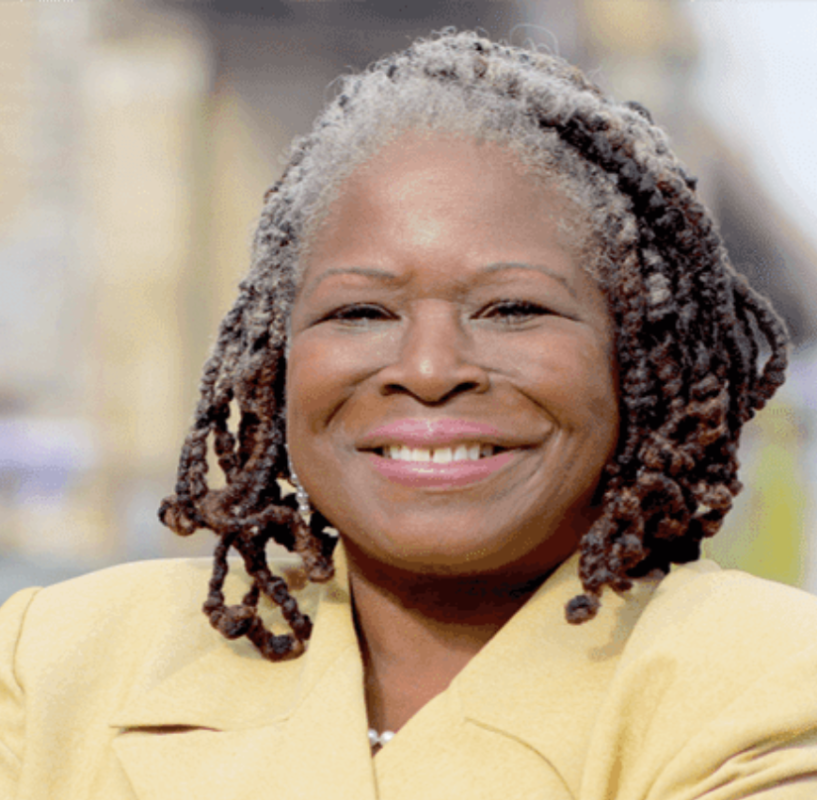
Casilda Roper-Simpson
Casilda Elena Roper-Simpson currently serves as an administrative judge in the state’s Office of Temporary and Disability Assistance, presiding over hearings on social service and benefit disputes, but has a long history as a defense attorney, including in high profile cases. This is not her first run for office: she unsuccessfully ran for City Council in 1997 and State Senate in 2006. But this is her first time running for a judgeship.
A native of Panama who moved with her family to Crown Heights at a young age, Roper-Simpson graduated from Brooklyn Law School in 1994 and started practicing in 1996.
Early in her career, she was part of the defense team representing Abner Louima, a Brooklyn man who was severely beaten and sexually assaulted by NYPD officers in 1997 in a case that gained national attention. Roper-Simpson said she and her team managed to get Louima’s initial charges dropped, though Louima himself said that her team hadn’t been responsible for that. She and her partners left the case in 1998 after the celebrity lawyer Johnnie Cochran, famous for representing OJ Simpson, took over Louima’s defense; she was later involved in a dispute over legal fees in the case.
Roper-Simpson also served as counsel to the family of Patrick Bailey, a Black man shot and killed by NYPD cops in East New York in 1997.
In addition to running her own private practice, Roper-Simpson has also served as a lecturer at Molloy College in Nassau County, hosted her own radio show, and was a contributing author on the 2015 Detective’s Handbook. She also served as an 18-b attorney, representing indigent clients in cases where regular providers like the Legal Aid Society are restricted due to conflicts of interest, until becoming an administrative judge.
Roper-Simpson told Bklyner that she did not seek the endorsement of the Brooklyn Democratic Party, and framed her run as being against the machine.
“I knew they would probably not endorse me because they already had who they wanted to endorse,” Roper-Simpson said.
“Based on the numbers, it’s not a lot of folks that really come out to vote for judicial races,” she said. “If you can keep it “a secret,” you can manipulate it.”
Echoing points other candidates had made, she said many of her law students are not even aware that judges in New York are elected.
She also said that the city’s court system needs to become a more accessible place for the working class, specifically pointing to greater use of night court as something that would make the justice system fairer to those without means.
“People that are employed, even if they have “criminal cases to handle,” you’re still innocent till proven guilty,” she said. “They should be able to come at night, they have a job to do.”
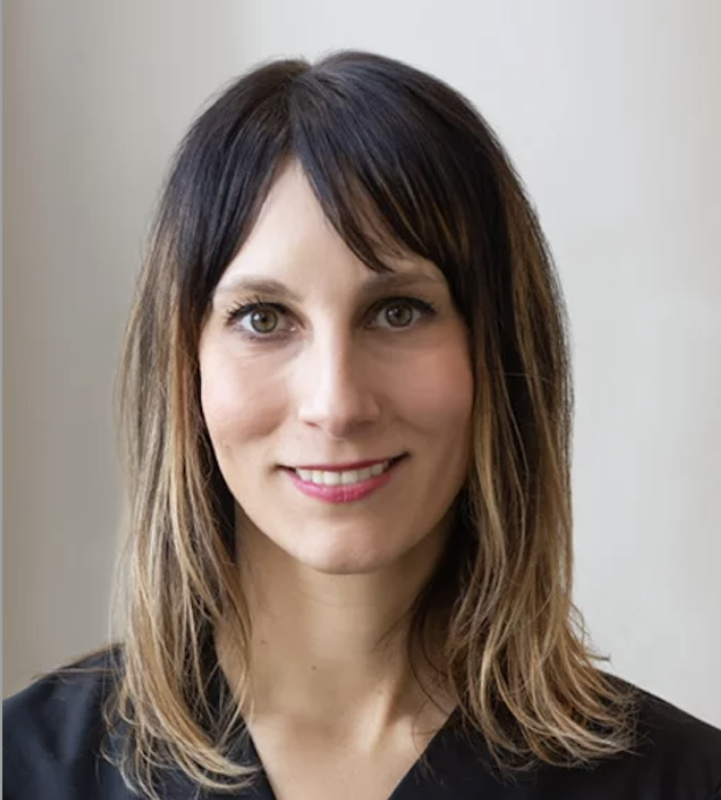
Heela Capell
Heela Capell’s name will not actually appear on the primary ballot, as she is running unopposed for her seat, though she will appear on the general election ballot in November. Originally from Manhattan, born to Israeli parents, she is a graduate of Cardozo Law School and currently lives in Gowanus.
She currently serves as a judge in housing court; she’s one of a few judges who has been conducting in-person hearings for months, owing to the fact that many of those who cycle through housing court do not have access to the internet at home. She says she would like to see the court system take action to increase accessibility for indigent defendants without internet access, including by establishing hubs that would serve as access points to the web.
“I think with the amount of unrepresented litigants coming in, we should have hubs for internet access via the court system. It’s tough when you don’t have that,” Capell told Bklyner. “I’m hopeful that the court system will take into account that people need access to the internet.”
Capell says that she’s running for Civil Court to expand the breadth of cases that she would be presiding over, rather than being restricted to one area of law. “My heart has a place for housing court in it, but I also want to be able to explore other things in my judicial capacity.”
Despite the fact that she won’t actually be appearing on the June primary ballot, Capell has received the endorsement of the Brooklyn Democratic Party. She’s also been endorsed by reform clubs in the borough like Independent Neighborhood Democrats and Central Brooklyn Independent Democrats.
Sharen Hudson
Sharen Hudson, who did not agree to an interview with Bklyner, is an incumbent in countywide Civil Court, having first been elected in 2011 to a ten-year term, and is seeking a second decade on the bench. She is running unopposed in the primary and thus will not appear on the June 22 ballot. She has the support of the Brooklyn Democratic Party.
Hudson ran unsuccessfully for Civil Court in 2007. Prior to her elevation to the bench, she had served as a court attorney, an arbitrator, and as a law clerk, and at the time of her election, she was serving as a court attorney at the Red Hook Community Justice Center, according to her profile on Trellis. She has also served as former vice-chair of Bed Stuy Legal Services, which provides counsel and legal advice to low-income neighborhood residents, and was a board member of the Metropolitan Black Bar Association.
Hudson does not have a campaign website and has minimal social media presence.
Civil Court – District 2
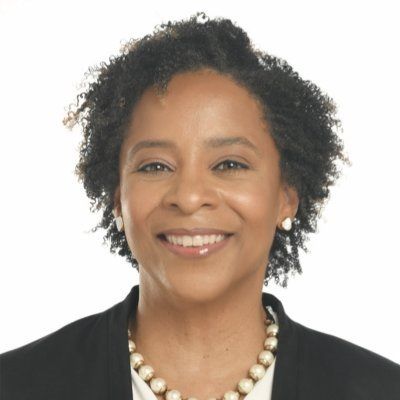
Lisa Lewis
Lisa Lewis, a native of Crown Heights who now lives in Bed Stuy, sees community involvement as a deeply important prerequisite for being a good judge.
In an interview with Bklyner, Lewis said that when the seat opened up in the 2nd district, she thought, “this is a great opportunity for me, because I have my roots in the district. I could’ve run countywide, but I’d have been at a severe disadvantage because I’m not as invested in those communities as I am in the 2nd municipal district.”
Unlike most other judge candidates this year, she’s worked with not only community organizations like her block association and a neighborhood alliance of tenant groups (Bed Stuy Works), but also in more established organs of local politics.
She serves on Community Board 3, where she’s a member of the housing and land use committee, as well as in County Committee, and was an elected delegate to the Democratic National Convention on behalf of the Biden-Harris campaign.
Nevertheless, she didn’t seek an endorsement from the county party despite going through the screening process and being found qualified. She said that the party’s decision-making process often suffers from a lack of transparency, to the point that even insiders like County Committee members don’t know what’s going on.
“We’re not present when the discussion takes place and the vote takes place,” she said, noting that many decisions of consequence get made by the Executive Committee. “Sometimes it’s not even an issue of agreeing or disagreeing, it’s just we don’t know what happened. That’s where you get cries of manipulation, unfairness, things of that nature, because you have speculation about what took place.”
“To say the party plays too much of a role, I’m not sure because I don’t know what is happening.”
For her day job, Lewis works as a staff attorney for District Council 37, the city’s largest public employees union. She represents members in matrimonial cases, part of the union’s network of attorneys that represent its members in all manner of legal proceedings, from housing to bankruptcy, immigration, and probate, among other things.
Prior to DC37, Lewis worked for the Legal Aid Society, clerked for Judge Cheryl E. Chambers both in Civil and Criminal Court, worked in private practice, and taught at Hofstra Law. She briefly worked in private practice but said she was put off by the structure of high fees in exchange for representation.
Lewis has been endorsed by her employer, DC37, as well as by City Council Member Darma Diaz, by several District Leaders in the 2nd Municipal District, and by her home political club Vanguard Independent Democratic Association.
Lewis said that she would like to see the justice system become more accessible, both to indigent defendants who often have to miss work for court dates, and for groups like seniors, disabled people, non-English speakers, and people of color who tend to go into court at a preordained disadvantage.
She also said that, as a judge, she would utilize judicial discretion to advance community interests when possible.
“As a judge, I would follow the law, whatever the law requires, that is absolutely what I would do,” she said. “However, there are instances where judges have discretion. And I would utilize that discretion to advance community ideals, as well as looking at the individual to see what they need. Because I don’t think that this justice system is just punitive. There are rehabilitative aspects as well.”
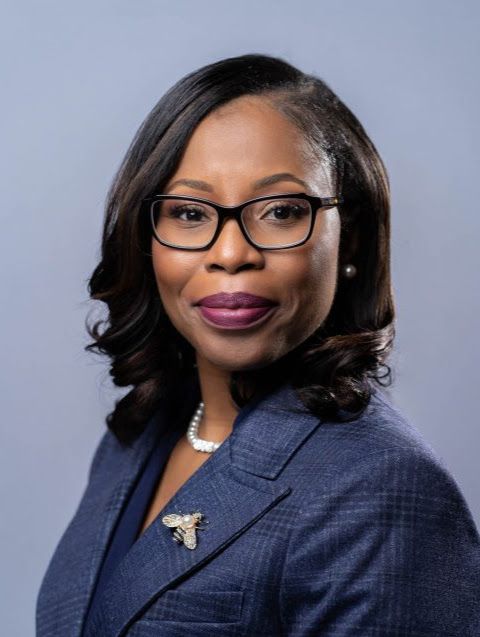
Lola Waterman
Lola Waterman currently works as principal law clerk to Brooklyn Supreme Court Justice Lisa Ottley, who mainly works on cases involving guardianship. She says that this kind of work, wherein the state can declare someone incapacitated and place them under the care and supervision of someone else, requires both extensive knowledge of various types of law and how they intersect, as well as compassion, empathy, and understanding.
“We don’t take it lightly,” Waterman told Bklyner. “Finding someone incapacitated means you’re taking away their constitutional rights to make any decisions for themselves. So as the law clerk, I have to try to conference and resolve and mediate the disputes. As you can tell, it could be very stressful.”
A native of Michigan, Waterman spent her formative years in Nigeria. She moved back to the US after her father died due to gun violence. After graduating from Arizona State University she initially went to work for Kraft Foods, but became inspired to practice law after volunteering with victims of domestic abuse. At that point, she moved to New York to attend New York Law School. She currently lives in Bed Stuy.
Prior to working in the court system, Waterman had her own private practice. She has also served as a volunteer arbitrator in small claims court and as a “guardian ad litem” in housing and surrogate court, where she was assigned to assist people unable to fully defend themselves, like the elderly and people with disabilities in housing court, and unidentified decedents in surrogate.
“The one thing that I think defines me is my commitment to whether you want to call it legal transparency, or awareness in people,” she said. “As a law clerk and attorney, I saw how people from marginalized communities would come into the courthouse and not get their cases resolved in the way that it should be because they don’t have representation. Not everyone can come in with a high-powered attorney.”
Waterman noted that she often organizes legal clinics, including one the night this interview took place. She also said that everyone in the court system needs to be better educated on mental health issues, which she says many judges do not show requisite sensitivity towards.
Waterman did not seek the Brooklyn Democratic Party’s nomination, although she did go through its screening process. “I was never part of the club, I was never part of the in-crowd, I didn’t want to be,” she said. “I felt that I needed to take my story directly to the voters.”
“When you owe somebody a favor, you owe somebody a favor,” she said. “If they’ve assisted you in getting to the bench, and they show up later asking for favors, the question is how independent can you be. I’m gonna be on the bench representing the people who put me there, making the best decisions and not feeling like I owe somebody anything as a judge.”
Waterman also believes that the convoluted manner in which judges are chosen means voters are not sufficiently informed about who they are elevating to the bench, or even what it is the judges they’re voting for actually do.
“For a civil court race, you can run a grassroots campaign,” she said. “I’m not endorsed by county but I can still run, but that changes if you’re running for any other judicial seat. When every judicial seat has its own set of rules, it confuses people.”
“I don’t know what the rationale is, I guess it’s not as sexy as the other races. Either it’s not as sexy or people don’t understand it. Either way, it’s a problem because judges do matter, it matters who’s on the bench making decisions on nearly every facet of our lives.”
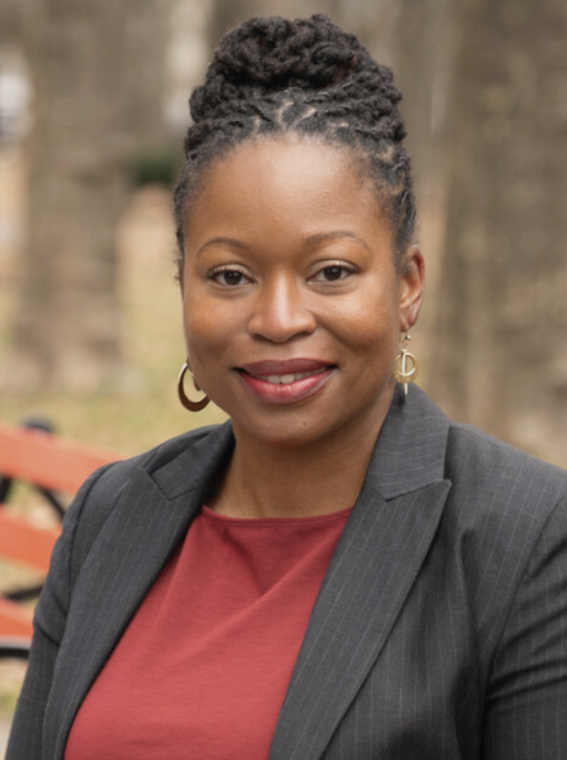
Marva Brown
Marva Brown, born in Westchester, raised in Albany, and a Brooklynite since 2003, has spent her legal career as a public defender with the Legal Aid Society. She started at Legal Aid in 2006 in Nassau County, went to the Bronx office in 2008, and has been working in the Brooklyn branch since 2010. She is a graduate of Cardozo Law School.
Brown is the only career public defender running for a Brooklyn judgeship this year, and she says that that experience is a major factor informing both her run for office and how she wants to operate as a judge.
“I’ve been a public defender my entire legal career because I see how the criminal justice system affects people’s lives in so many ways,” said Brown, who ironically comes from a family of law enforcement officers, in an interview with Bklyner. “When I think of my campaign being successful, it’s kind of bittersweet not to be representing clients anymore because I do enjoy it very much.”
Brown said that there was one case in particular that she worked on which galvanized her into running for judge. That case involved a man charged and convicted of residential burglary who was slapped with 15-years-to-life, which Brown found to be highly excessive. “No one was home, no one was injured, but he got life,” she said.
The case was appealed, and the Court of Appeals found that the judge in the case had abused his discretion, as Brown put it. The case was sent back down to the lower courts where it was heard by a different judge. That judge sentenced the defendant to seven years, which Brown said was still a long time to spend in prison but nonetheless represented how differently defendants can be treated depending on what judge they appear in front of.
“That other judge was literally throwing my client away,” Brown said. “And this one saw value in his life. And I said, I need to be a judge who sees value in people’s lives.”
“That was my inspiration to say, ‘ok, I need to take the next step in my career.’”
Brown, who did not seek an endorsement from the county party, said that recognizing the human element of being a judge is key to rendering fair verdicts and not throwing the book at vulnerable defendants.
“When you have compassion, a sense of humanity, a sense of value in the people and the potential of people and understanding their life circumstances and what brought them to a place of being a litigant in court, and understanding that things happen and that one situation should not define a person’s entire existence, being open to seeing a person as a total human being as opposed to just one act,” she said, “I think that’s the difference between a quality judge and one who is not.”
Civil Court – District 7
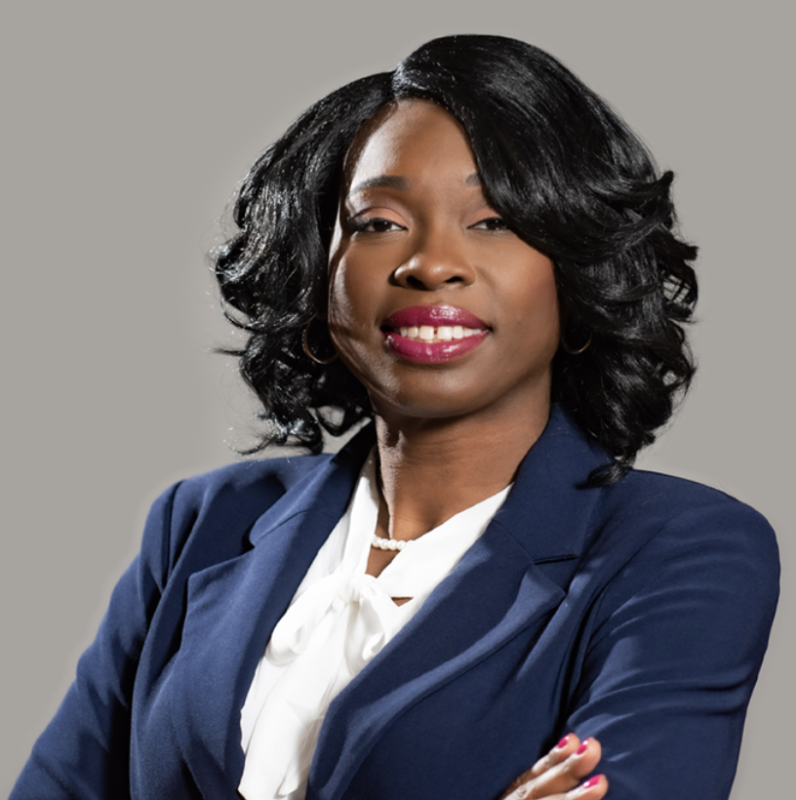
Keisha Alleyne
Keisha Alleyne, born and raised in Brownsville and a graduate of Thurgood Marshall Law School in Houston, was working as an in-house attorney at Travelers Insurance before the onset of the pandemic. She practiced law for 18 years, mainly corporate defense, before deciding to run for the open judgeship.
“The natural progression is to stay in the field you’re in and take it to the next level where you can make a big impact,” Alleyne told Bklyner.
Alleyne is also the founder and CEO of the consulting firm Elite Visions Enterprise, which describes itself as a place seeking to “empower visionaries to live beyond their limitations and achieve beyond their dreams.” The firm provides consulting services to minority-and-women-owned businesses and also puts on programming for young people, specifically young women of color, who are interested in learning about the law, hosting debates, mock trials, and oratorical competitions.
Alleyne said that seeing the way the pandemic unfolded over the past year, disproportionately impacting communities of color and low-income communities in New York and elsewhere, was a turning point that made her decide to seek out a judgeship.
“For me, it is definitely something that I have been thinking of doing for a long time,” she said. “The 2020 pandemic really was the kick-starter for me mentally to say I need to take my talents to the next level and run for judge because of all the things that happened last year.”
“I felt the biggest impact I could make was actually sitting on the bench,” she said.
She did not seek the endorsement of the Brooklyn Democratic Party, saying that their process was already over by the time she launched her campaign.
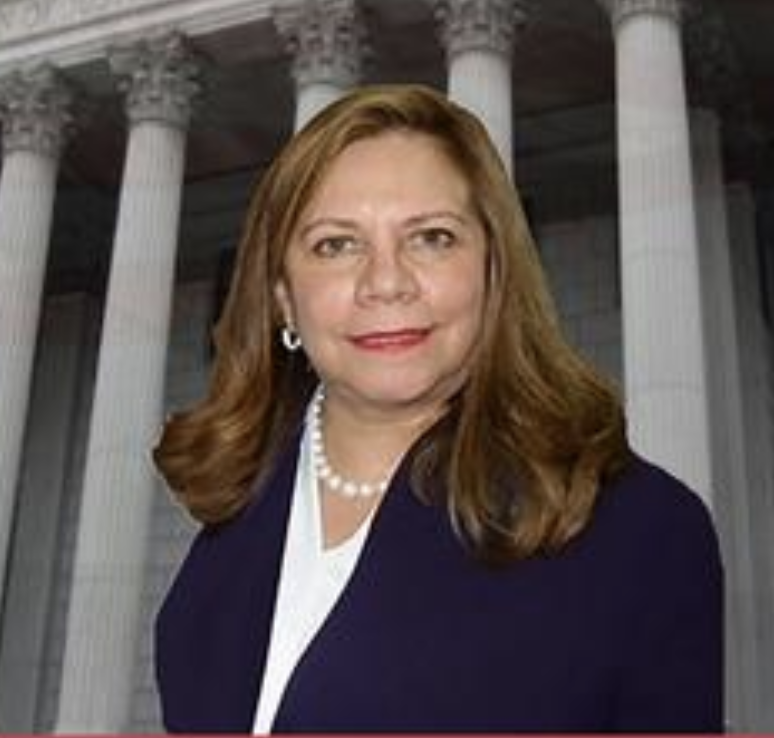
Carmen Pacheco
Carmen Pacheco has been a partner in the law firm Pacheco & Lugo since 1992. In an interview with Bklyner she said that she and her business partner, Betty Lugo, who ran unsuccessfully for Queens District Attorney in 2019 and is currently running for Civil Court in Manhattan, were the first two Latinas in New York to own and run their own law firm. Their office was once on the 98th floor of the World Trade Center, but they moved their operations about a year before a plane crashed through that floor on 9/11.
Pacheco, who is continuing to work at her law practice even as she runs for office, said watching her partner run for DA did not inspire her to do the same, and in fact almost did the opposite.
“Running for any candidacy, it wouldn’t inspire anybody,” Pacheco said. “You’re out there early in the morning at 6 am, I’m up at 5:30, gotta be at a train station handing out cards, smiling, talking to people. That kind of stuff. It’s not easy. Then you have to get your work done.”
She was inspired to run, she said, by the amount of impact that a judge can make as an individual actor, as opposed to the more limited impact that can be wrought by an attorney. “Judges, when they make decisions, its impact on society is at a greater bandwidth and scale,” she said. “And it impacts the community too.”
A Red Hook native and a graduate of St. John’s Law School, she now lives in Carroll Gardens and has her practice in Boerum Hill.
She served as president of the Puerto Rican Bar Association in 2017 and has served in other leadership roles in that group as well.
She said that as a judge she would work to make the justice system more accessible to those without a legal background to prevent people from being taken to the cleaners.
“How do you treat that pro se litigant? Well, you have to be mindful,” she said. “The judge has an obligation to ensure there’s proper access to justice so the person understands the process, the limitations of what they can do in the courtroom. Some judges are good with it, some judges are like, whoa.”
Pacheco did not seek the county party’s endorsement but has been endorsed by elected officials in the district including Assemblymembers Erik Dilan and Maritza Davila, and City Council Member Darma Diaz, as well as the New York State Court Clerks Association and the State Court Officers Association.




